Student protests can challenge the status quo
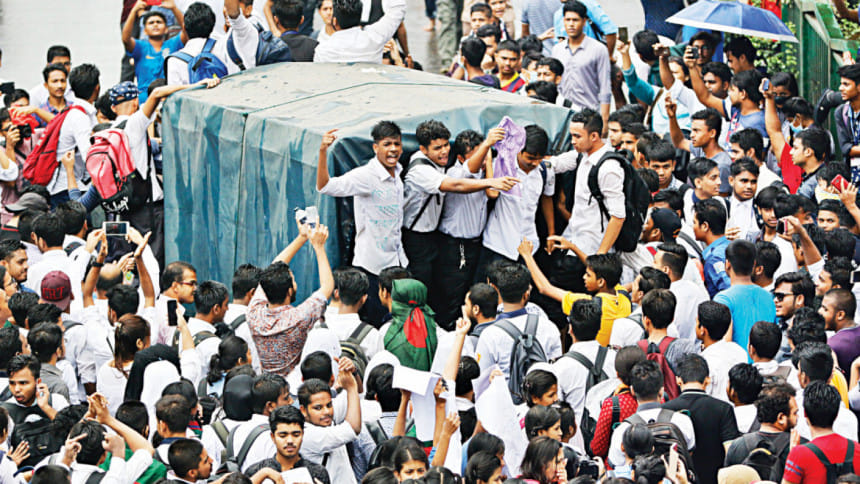
What comprises our rights as humans? The Universal Declaration of Human Rights aim for "recognition of the inherent dignity and of the equal and inalienable rights of all members of the human family is the foundation of freedom, justice and peace in the world." So, we have the right to anything and everything, given that we do not create threats toward others' freedom and peace.
The fundamental issue is about achieving equal rights for all fellow humans. Hence, the collective shaping of the structures that govern our lives, i.e. politics or society, is even more crucial. However, today, we have less and less control over politics globally; we vote and choose the people that govern us, but more often than not, the political parties that hold state power overlook popular demands and become threats to the collective humanity as evinced by wars and the destruction of the environment for profit-making ventures. Then, how could we overcome the socio-political structures that dominate us and reclaim our right to politics?
The student encampment movements in the US recently reflected how we could regain control of what is ours. We all know by now that students on campuses across the US have built encampments, occupied buildings, and led protests urging educational institutions to divest their endowments from companies profiting from the Israeli war against the Palestinian people. However, through police brutality, arrests, and negotiations, many of the encampments are cleared from campuses. Nonetheless, some universities have committed to reviewing their investments. There are some encampments still holding their places. However, we are not sure how long they will survive. The student protests may shrink without ensuring any drastic changes in the US policies regarding their support towards Israel. Still, how students protested reflects possibilities for egalitarianism and a shared vision for reclaiming our right to politics and ensuring peace and liberty for all.
I witnessed student protests at the University of Oregon. On May 10, the 12th day of their encampment, the student protest took a significant turn. They momentarily took control of the main administrative building and chanted slogans for divestment. One basis of their demands is reflected by the slogan, "Whose university? Our university" or "We are the University [of Oregon]." Later, when they came out, some students delivered speeches from the entrance staircase to a mass crowd in front of the building. They argued that their tuition fees should not fund the war and killings of innocent people. Thus, they demanded the university to divest and sought public support. They did not claim to take over the university or the state but wanted to cease the ongoing war. During this time, employees of the administrative building locked the building from the inside so the students could not reenter. Later, the students marched across the campus and returned to the encampment sites. That day, students momentarily took back spaces controlled by the "authorities".
We recently experienced similar anti-establishment protests in Bangladesh. We can recall large student protests for ensuring road safety and enacting new traffic laws, restructuring the quotas in government jobs, and eliminating imposed VAT on tuition fees, etc. All these protests reflect similar aspirations for equality and justice and, more importantly, the power of unity. Students without centralised leadership took control of spaces, even if momentarily, shaking the centres of power to their core—even though they did not aim to overthrow the regime.
This form of prefigurative protest is pivotal in reclaiming our right to politics. David Graeber, in the book The Democracy Project, reflected how a popular movement's hostility to the political establishment is reflected through its refusal to take any political positions at all. Unlike other political movements, recent student movements in the US or Bangladesh do not seek state power. Still, by not aiming for power, these movements envision a society without an authoritarian structure.
An atmosphere of equality and fairness, the ability to organise and mobilise through digital media, the peaceful takeover of infrastructures such as roads and administrative offices, and a gradual movement expansion are all key features of student protests. In the US, there was another crucial factor: the protesters were from different races and cultures, but they were united in their shared vision for an equitable future. Student protests exhibited a new form of organising discontent by endorsing a prefigurative strategy—without having a political structure. The movements themselves are critical achievements. In Alain Badiou's words, the student movements can womb an "[idea] capable of challenging the corrupt, lifeless version of 'democracy', which has become the banner of the legionaries of Capital." The frequency of student protests worldwide indicates the possibility of forming a more egalitarian society.
The student protests, in a way, have demonstrated that anarchism may promote equality and justice. While it is accused of violence and chaos, David Graeber claimed that anarchism is philosophically grounded in the belief that humans are capable of reason and can flourish without being subjected to coercive force. In contrast, traditional governing structures often perpetuate unequal power structures. For this reason, following the student protests, we must embrace our capacity for reason and come together to reclaim our rights to politics and create a more just world. This will not be easy, as our experiences of the student protests tell us.
The questions that might remain in our hearts are: What future lies ahead of such prefigurative protests? What can we possibly do once such protests succumb to the existing political forces? Frankly, there is no blueprint. Instead, it should be an experimental process. For now, the momentary experience of real freedom is what the protest participants will have once all the encampments are cleared across the US. Many of us will have a first-person account of such political moments and stories to tell, possibly leading to a revolutionary or creative epoch.
Mohammad Tareq Hasan, PhD, is an anthropologist and teaches at Dhaka University. He is currently a visiting fellow at the University of Oregon, USA.
Views expressed in this article are the author's own.
Follow The Daily Star Opinion on Facebook for the latest opinions, commentaries and analyses by experts and professionals. To contribute your article or letter to The Daily Star Opinion, see our guidelines for submission.

 For all latest news, follow The Daily Star's Google News channel.
For all latest news, follow The Daily Star's Google News channel. 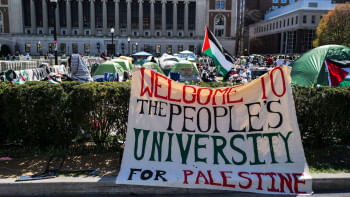

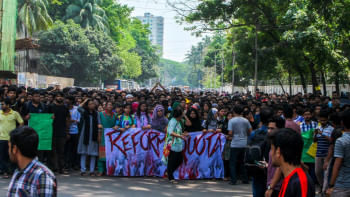


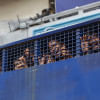



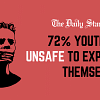

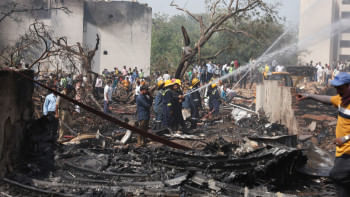
Comments